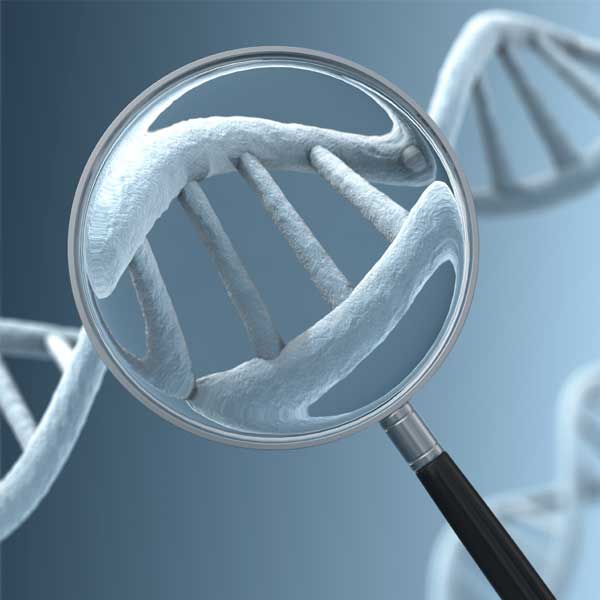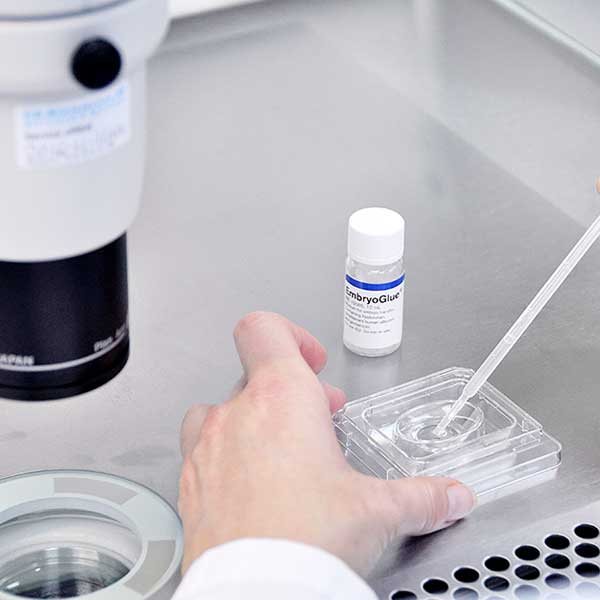Endometrium is the inner tissue lining of the uterus where the embryo implants during pregnancy. Embryo implantation is a complex process involving the careful coordination of various factors. During the cycle, the endometrium prepares an adequate environment for the arrival of an embryo. After sperm fertilizes an egg, the embryo moves from the fallopian tubes to the uterus and gets implanted into the endometrium lining of the womb. The endometrial lining thickens and becomes receptive to implant a fertilized egg in response to hormone secretion. Endometrial Receptivity Assay in Chennai is a valuable diagnostic tool that can help determine the optimal timing for this process, enhancing the chances of successful embryo implantation and pregnancy.
When the embryo implants into the uterine cavity, the cells from the embryo and inner lining fuse to form a placenta. If no egg arrives for implantation, the tissue lining sheds, and menstruation begins. To optimize this process, Endometrial Receptivity Assay in Chennai is used to determine the best timing for embryo transfer and improve implantation success.
In an IVF cycle, the embryo is formed in laboratory conditions and is transferred directly into the uterine cavity for implantation. Sometimes, it may fail to stick to the uterine lining, resulting in pregnancy loss. This may be because the endometrial lining was not prepared to receive the embryo. This is where Endometrial Receptivity Assay in Chennai plays a crucial role. ERA helps avoid implantation failure by determining the best day for embryo transfer. This is achieved by identifying the window of implantation, which usually falls between days 19-21 of the menstrual cycle.
What is ERA?
Endometrial Receptivity Analysis (ERA) is an advanced test that helps determine the best time for embryo transfer in an IVF cycle. This test evaluates the receptivity of the endometrium to increase the chances of implantation and a successful pregnancy.
Why is ERA Important?
ERA plays a crucial role in fertility treatments, especially for women who have experienced multiple failed IVF cycles. This test:
- Identifies the ideal implantation window
- Enhances the success rate of embryo transfer
- Reduces the chances of implantation failure
- Personalizes IVF treatment for better results
Where to Get ERA in Chennai
For couples looking for ERA in Chennai, several reputed fertility centers and hospitals provide this test. Leading clinics with experienced specialists offer personalized care and advanced testing facilities. When choosing a clinic, consider:
- Expertise in reproductive medicine
- Availability of advanced diagnostic labs
- Success rates of fertility treatments
- Patient reviews and testimonials
How is ERA Performed?
A small sample of endometrial tissue is obtained through a painless biopsy and analyzed through the Endometrial Receptivity Assay test to establish the best day for transferring the embryo. The ERA test evaluates whether the endometrium is receptive by analyzing 248 genes involved in endometrial receptivity.
The test results indicate the receptive or non-receptive days of the implantation window. For non-receptive results, a second ERA test is performed to determine the correct window of implantation. If the results are receptive, the embryo transfer is performed on the same day in the next cycle. If using frozen embryos for implantation, Endometrial Receptivity Assay in Chennai provides the opportunity to thaw and prepare the embryos before the estimated date, ensuring they are ready for implantation in the uterus in the following month.
Who Should Take the ERA Test?
ERA testing is a personalized program as the implantation window varies for each woman. The ERA test is suggested for women who have experienced recurrent implantation failure and those with high maternal age. Endometrial Receptivity Assay in Chennai helps identify the optimum window for implantation accurately, improving the chances of pregnancy for those undergoing IVF.
Benefits of ERA Test
Finding the optimum day for embryo transfer through Endometrial Receptivity Assay in Chennai increases the chances of implantation and pregnancy to a rate of 73% in women with implantation failure. It is a useful procedure to determine the optimal time for embryo transfer, potentially avoiding additional IVF procedures.
The ERA test monitors the recurring pattern of 238 different genes and establishes a personalized window of implantation for each woman. To learn more about the ERA test and your chances of identifying the window of implantation, book an appointment now.
Risks of Endometrial Receptivity Assay in Chennai
Endometrial Receptivity Assay (ERA) is a diagnostic test used to evaluate the optimal timing for embryo transfer in assisted reproductive treatments. While it provides valuable insights into endometrial receptivity, there are some risks and considerations associated with the procedure. Endometrial Receptivity Assay in Chennai involves the following potential risks:
- Invasive Procedure: ERA requires an endometrial biopsy, which involves the insertion of a catheter through the cervix to collect a tissue sample from the uterine lining. This invasive procedure may cause discomfort or cramping and has a small risk of bleeding or infection.
- Pain and Discomfort: Some patients may experience mild to moderate pain or cramping during and after the biopsy. The level of discomfort can vary depending on individual pain thresholds and the skill of the practitioner performing the procedure.
- Risk of Infection: Although rare, there is a risk of infection following the biopsy. Proper sterilization techniques and post-procedure care are essential to minimize this risk.
- False Results: While ERA is highly accurate, there is a possibility of false-negative or false-positive results. A false negative could lead to a missed opportunity for implantation, while a false positive might result in unnecessary changes to the treatment protocol.
- Emotional Stress: Undergoing an endometrial biopsy and waiting for results can cause emotional stress and anxiety for patients, particularly those undergoing fertility treatments. The stress of potential outcomes can impact overall well-being.
- Potential for Repeat Biopsy: In some cases, the results from the initial ERA may not be definitive, necessitating a repeat biopsy. This can increase the discomfort and risks associated with the procedure.
- Cost Considerations: Endometrial Receptivity Assay in Chennai may involve additional costs not always covered by insurance. It’s important to consider these financial aspects when deciding to undergo the test.
Despite these risks, Endometrial Receptivity Assay in Chennai offers valuable information that can enhance the success of fertility treatments by optimizing the timing of embryo transfer. Discussing these risks with a fertility specialist can help patients make informed decisions and manage potential issues effectively.
Cost of ERA in Chennai
The ERA cost in Chennai varies based on the clinic, the technology used, and additional factors like consultation and laboratory charges. On average, the cost of ERA in Chennai ranges between ₹35,000 to ₹50,000. However, it is essential to consult a fertility expert to get an exact estimate based on your specific requirements.
Key Takeaways
- ERA in Chennai is recommended for women with recurrent IVF failures.
- The test helps determine the best time for embryo transfer, improving pregnancy chances.
- The ERA cost in Chennai depends on the clinic and medical factors.
- Always consult a fertility specialist to understand if ERA is suitable for you.
Conclusion
Endometrial Receptivity Assay in Chennai provides a crucial advantage in optimizing the timing of embryo transfer for enhanced fertility outcomes. By accurately determining the most receptive phase of the endometrial lining, this assay helps improve implantation success rates and addresses potential timing issues that may impact pregnancy. For couples undergoing IVF or other fertility treatments, Endometrial Receptivity Assay in Chennai offers valuable insights that can lead to more effective treatment plans and better chances of achieving a successful pregnancy. For personalized assistance and to explore how this test can benefit your fertility journey, consult with specialists in Chennai to make informed decisions about your reproductive health.




